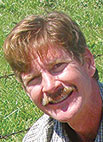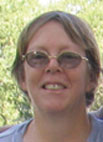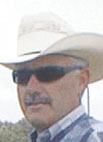All in the Family
If you are a person who loves to play with horses, cows and you live near Hogeye, Ark., you know LaCosta and Andy Napier and their family arena. “People like the lifestyle. We like to rope steers, train horses, run barrels, poles and flags,” Andy said. “We have people we would never have met if it weren’t for the arena. Those people are like family now. We ride together, we play together and we eat together. We are like a big family. We even have our own little Christmas party just for people who come to the arena. It’s just family oriented fun. We just love it.”
Backgrounding: Just A Way of Life
The actions of a kind uncle many years ago set in motion what has become a lifelong pursuit for David Kidd of Lincoln, Ark.
The Intensive Part of MIG
John Robinson did not grow up in the country, but he has found his niche on the 450-acre farm he and his brothers inherited from his grandfather in Valley Springs, Ark. He has tried everything from custom combining and hay baling to running a large herd of cow/calf pairs. However, four years ago John implemented a MIG (Managed Intensive Grazing) program. He now runs around 250 head of stocker cattle and 40 Red Angus/Saler cross mama cows. “I have learned cows can pick up grass more efficiently than I can. This is the most profitable for me at this time,” said John.
The Flock That Led Them
"I try to treat my animals the way I want to be treated and in doing so I really haven’t faced many challenges concerning their care over the past two years,” explained Linda Sanchez of
Lou-Lin Valley Ranch just north of Mountain Home, Ark.
The Voice Behind the Microphone
How many big radio names credit their start to The Future Farmers of America?
A Taste of the Mountain
Thirty years ago Ed Martsolf began his bid to change the sheep industry. At the time, most sheep in the state of Arkansas were raised for the purpose of providing wool. Mr. Martsolf knew the market for wool was diminishing, but, he also knew a sheep market still remained largely untapped. If Ed could build a flock of sheep with the single purpose of becoming seed stock to produce a mild tasting meat, he could tap the meat market for lamb. However, Ed knew that this flock could not be just another flock of wool producing sheep; his flock must be chemical free, hair sheep; Katahdin Hair sheep.
Top Quality For Meat and Show
Owned and operated by Pat and Clark Cotten and son Elliott, Bending Tree Ranch is located near Damascus, Ark. The 20 acres of rough/wooded land they own offers good browse/forage for their animals. They also utilize another 40 acres for the animals’ browsing. In addition to breeding and raising both registered and commercial stock, she also breeds and sells show wethers. Dominique, a Market show wether, bred by Pat, won 1st place at the Arkansas state fair in 2007, and came in 5th in Over-All Grand Drive. They sell breeding stock nation-wide as well as sell some slaughter stock each year.
Carrying on the Tradition
Born and raised in Gentry, Ark., Larry Curran grew up going to the feed store his family ran for fun. The Curran family had bought the store in 1946. It's been run by the same family ever since. Larry started working at the feed store when he was in high school. Larry’s brothers and sister would eat every meal at the table together while growing up and are still close to this day. Larry said he feels blessed to have been able to work in and run the feed store for the last 36 years. Today, Larry and his wife of over 30 years, Lou Ann, have feed stores in Gentry and Elm Springs, Ark., and all Larry’s children live close by.
Kids on Calves and Calves on Grass
As Madison County residents gear up for the county fair this September, there will be a familiar sight on the sidelines of the showmanship ring: Jeff Williams instructing a child on how to handle an animal in order to win.
Building a Purebred Herd
In the middle of the second cutting and baling at the end of July, D.A. Dahlke worked hard to get his hay in before another rain. He partners with his brother, Doin; they bale hay from 40 acres, with half belonging to D.A., about 150 round bales each year.











